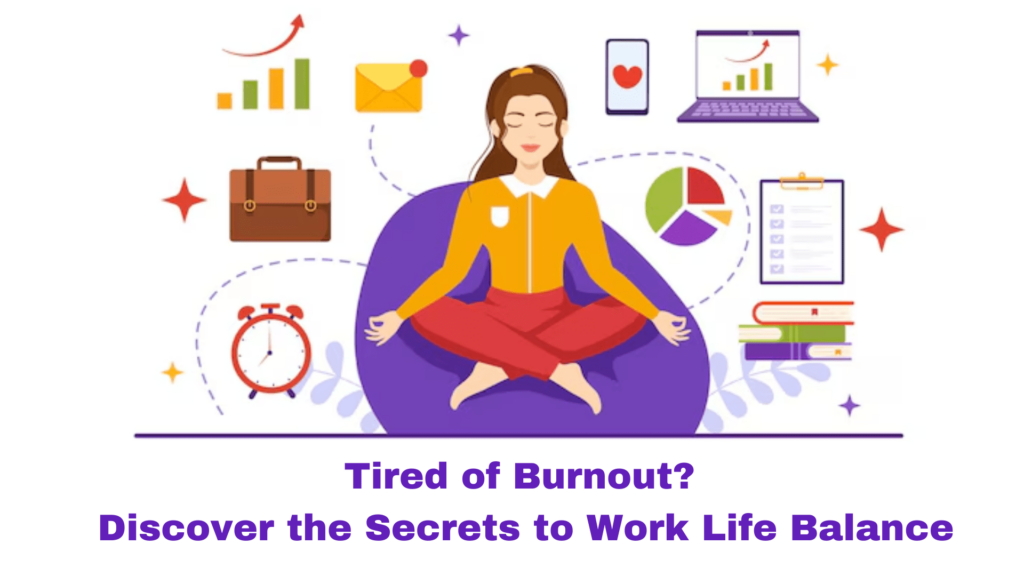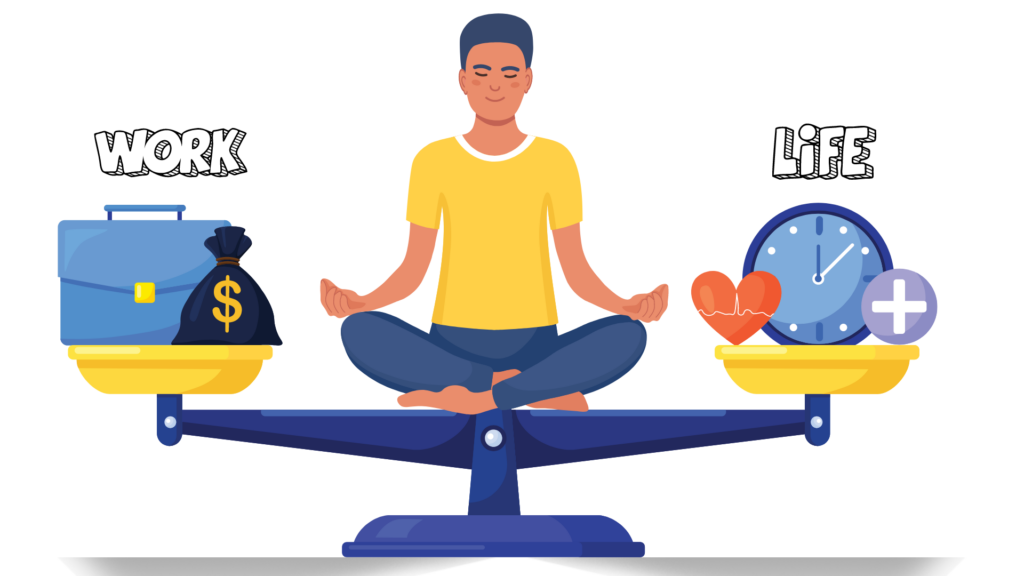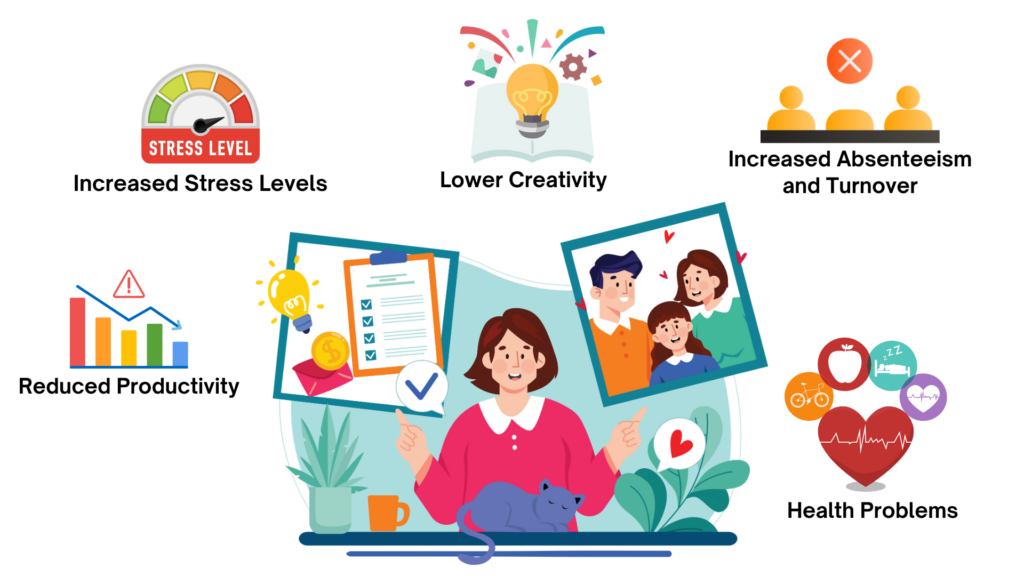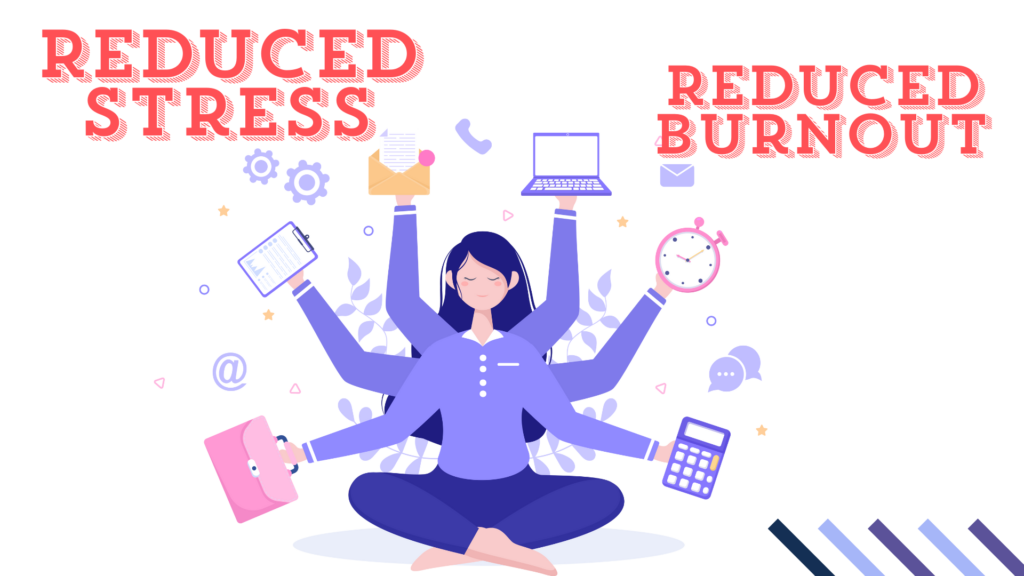A growing body of research consistently shows that employees who maintain a healthy work–life balance perform significantly better at work. Studies highlighted by the American Psychological Association (APA) indicate that when employees feel well-rested and supported, their productivity rises noticeably and their overall job satisfaction improves.
Similarly, insights published in the Harvard Business Review reveal a clear pattern: pushing workweeks beyond 50 hours dramatically increases the risk of burnout and emotional strain. Extended overwork is strongly associated with higher levels of stress, anxiety, and disengagement—factors that ultimately reduce performance and morale.
In short, organizations that prioritize balanced workloads and employee wellbeing see stronger output, happier teams, and far more sustainable performance.
Consequences of Poor Work-Life Balance: Consequences of Poor Work-Life Balance:
- Consequences for employees: fear, stress, new sources of burnout, lowered morale and added negative consequences on the overall well-being of the individuals.
- Consequences for employers: that lead to reduced efficiency, high levels of attrition, and organisational effects on the staff’s morale and motivation.
Would you like me to elaborate on these points or provide more information on work-life balance?
At Kredily, we understand the importance of maintaining a healthy work-life balance. In this blog, we’ll provide you with valuable insights and effective strategies for achieving this balance and maintaining it daily.
In today’s fast-paced corporate landscape, where deadlines loom large and work hours seem to stretch endlessly, the concept of work-life balance has taken center stage.
Work-Life Balance: Decoding the meaning?
Work-life balance is about maintaining harmony between your professional responsibilities and personal life, ensuring neither completely overshadows the other. Achieving a sustainable balance can lead to several positive outcomes, including the following
- Reduced stress
- Reduced burnout
- Heightened sense of well-being
Why is Work-Life Balance So Important?
A healthy work-life balance is crucial for several reasons:
- Increased Productivity: It is important for the employees to feel fresh and eager in Swatch’s corporate strategy since this wants them to be efficient and innovative.
- Improved Job Satisfaction: Maturity, both socially and personally leads to better-appreciated work thereby enhancing satisfaction at the workplace.
- Reduced Stress: Proper work-life balance can also be applied to minimise stress and eliminate the burnout issue.
- Better Health: A healthy work-life balance contributes to physical and mental well-being.
- Enhanced Employee Retention: Employees who feel valued and supported are more likely to stay with the organization which boosts employee retention.
The Consequences of Neglecting Work-Life Balance:
When work-life balance is neglected, it can lead to a host of negative consequences, including, it can lead to a host of negative consequences, including:
- Decreased Productivity: The overwhelmed employees are often less productive due to increased levels of stress.
- Increased Absenteeism and Turnover: Working stress and burnout show more effects with increased amounts of absenteeism and turnover rates observed on employees.
- Poor Job Performance: Well-rested and focused employees are likely to perform their work well, while those who are sleepy and ahead of schedule might not be productive.
- Health Problems: Not paying attention to the separation between work and personal life may lead to issues concerning one’s health.
Effective Strategies for Achieving Work-Life Balance:
- Set Clear Boundaries: This may include defining the time for working or being available, not doing any work-related activities during your leisure time employing the application of time management, etc.
- Prioritize and Delegate: Start with prioritizing your tasks try to delegate as much as possible and ensure that you do it before other non-essential work and do not hesitate to consult your colleagues or co-workers.
- Practice Self-Care: Set a schedule for leisure activities that can allow break or a relief from stress including physical activities, arts, and friends among others.
- Effective Time Management: Manage your time well and avoid situations where you are pressed for time or lack adequate time to do what you want.
- Set Realistic Goals: Set realistic targets for performance at the workplace or for personal goals in daily life. Do not overburden yourself and try to find a middle ground concerning both your career and your goals in life.
- Communicate Openly: Subordinate their workload and time commitments to their managers and coworkers and explain to them how they estimate their workloads. It can reduce extra workload pressure, and guarantee that there is enough workload distribution to avoid cases of burnout.
What HR and Managers Should Do for Work-Life Balance
- Celebrate Festivals Every Month: This should involve recognition and appreciation of various cultural celebrations and functions that occur all throughout the year.
- Corporate Outings: Schedule periodic corporate trips to improve relationships between workers, and help them let their hair down once in a while.
- Flexible Work Arrangements: Provide options to reduce work-related conflicts such as telecommuting, flextime, or reduced schedules for family responsibilities.
- Celebrate Fun Fridays: Initiate fun organizational activities in the workplace such as once a week or every other week to bring the morale high.
- Open Communication: Ensure that there is a culture of communicating and responding to needs and issues in an organization so that the employee feels comfortable to express themselves.
- Reward and Appreciation Day: Celebrate the employees and thank them for their good work on special occasions.
Recommendations on How to manage life balance when working remotely
- Create a Dedicated Workspace: Ensure that you set a specific room or area in your home where you work as a way of creating a barrier between work and family interpersonal relationships.
- Set a Routine: Make it a point to follow a schedule since it can help in setting a good and healthy groundwork to follow.
- Limit Distractions: One should reduce distractions by switching off the notifications, reducing on the number of tabs opened and working in a room with limited noise.
- Communicate Regularly: Learn how to communicate effectively with your team and manager by checking on them frequently or through other formal means of communication so that no misunderstandings may arise or you may feel out of touch.
- Take Virtual Breaks: Plan for occasional virtual coffee breaks, or other fun group activities that would keep employees from feeling lonely at work.
Conclusion
Growing environmental demands talk about maintaining a regular work-life balance to ensure the health of an individual and his productivity at work.
In this blog, people and companies can adopt the strategies described, and this way make the work environment healthier and more engaged. Bear in mind that when it comes to caring for yourself, you do not only decide about it for yourself, but doing so is required of you as a professional.



